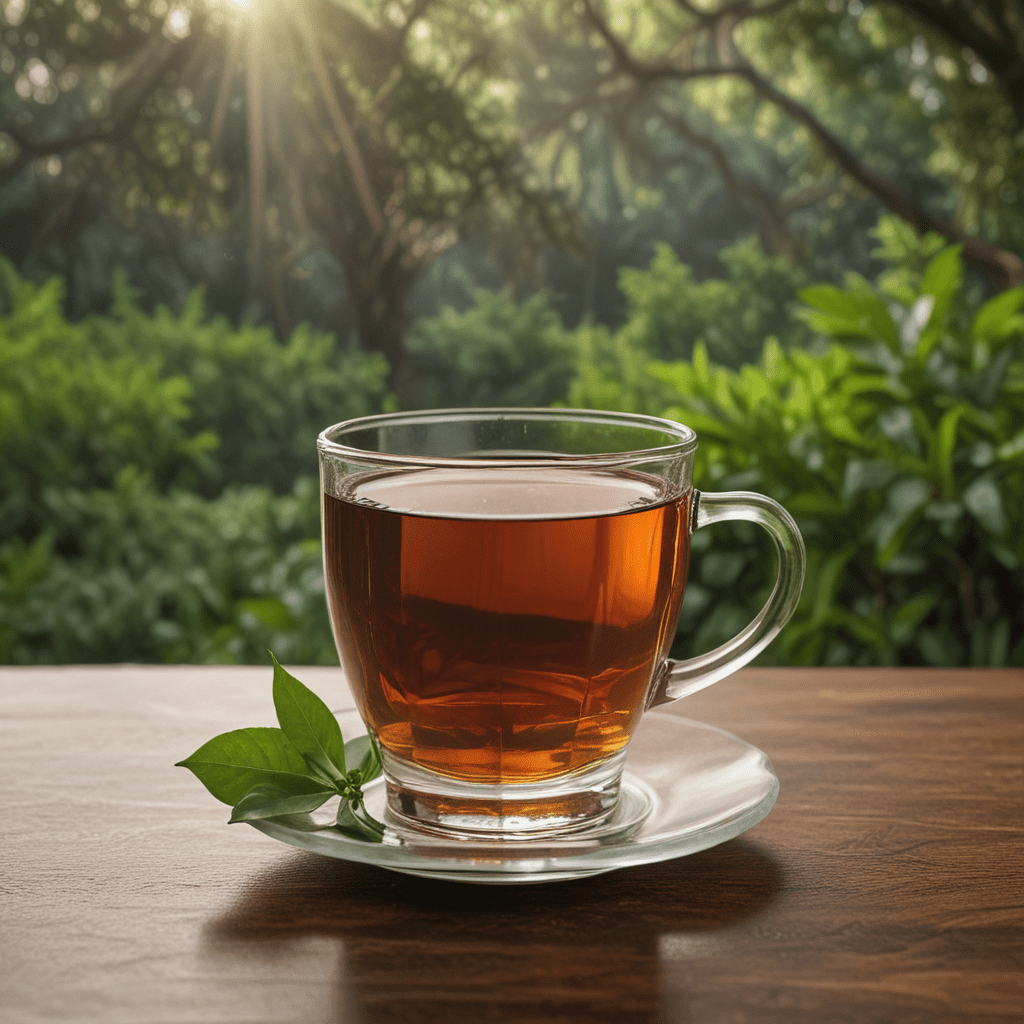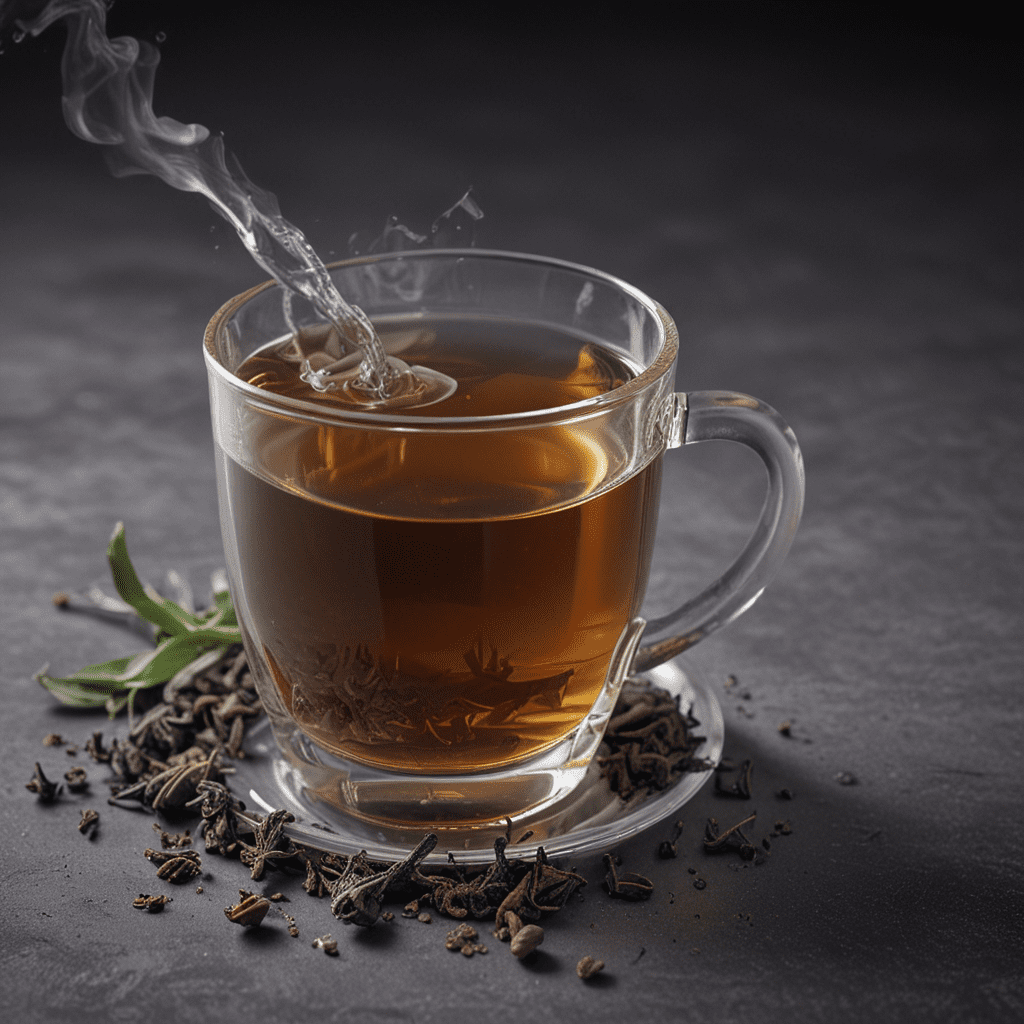Assam Tea: The Perfect Afternoon Pick-Me-Up
I. Introduction:
Tea, the world’s second-most consumed beverage, is a beloved centerpiece of many cultures, including the British, for whom it’s an integral part of their daily routines. Among the many esteemed varieties of tea, Assam tea stands out as a bold, full-bodied brew renowned for its robust flavor and invigorating effects. This tea, harvested from the verdant hills of Assam, India, is the perfect companion for an afternoon pick-me-up.
II. The History and Origins of Assam Tea:
The discovery of Assam tea dates back to the 19th century when British explorers stumbled upon local tribes using the leaves of a wild tea plant, Camellia sinensis var. assamica, to prepare a refreshing beverage. Recognizing its potential, the British established tea plantations in the Brahmaputra Valley, transforming Assam into a thriving tea-producing region.
III. The Geography and Climate of Assam:
Assam’s unique geography and climate contribute to the exceptional quality of its tea. The Brahmaputra River and its tributaries provide ample water for irrigation, while the region’s humid, subtropical climate creates an ideal environment for tea plants to flourish. The loamy soil, rich in organic matter, further enhances the flavor and aroma of Assam tea.
IV. The Varieties of Assam Tea:
Assam tea is renowned for its distinctive flavor profiles, with variations resulting from different processing methods. Orthodox tea, produced using traditional methods, boasts a rich, malty flavor, while CTC (crush, tear, curl) tea, a more modern method, yields a bolder, more robust brew. Both types of Assam tea offer a unique sensory experience.
V. The Health Benefits of Assam Tea:
Beyond its delightful taste, Assam tea is also recognized for its potential health benefits. Rich in antioxidants and anti-inflammatory compounds, it may contribute to cardiovascular and cognitive well-being. Studies suggest that regular consumption of Assam tea may lower blood pressure, improve cholesterol levels, and protect against neurodegenerative diseases.
VI. The Perfect Afternoon Pick-Me-Up:
Assam tea is highly valued for its energizing and mood-boosting effects. The caffeine content, while moderate, provides a gentle lift without inducing jitters. The rich, full-bodied flavor of Assam tea is believed to uplift the spirits and combat fatigue, making it an ideal beverage to combat the mid-afternoon slump.
VII. Brewing the Perfect Cup of Assam Tea:
Brewing the perfect cup of Assam tea requires careful attention to water temperature and steeping time. For optimal flavor, use high-quality, loose-leaf tea. Heat freshly drawn water to a rolling boil and allow it to cool slightly to 200°F (93°C) before pouring it over the tea leaves. Steep the tea for 3-5 minutes, depending on desired strength. You can add milk and sugar to taste, although many tea enthusiasts prefer to enjoy Assam tea black to fully appreciate its natural flavors.
VIII. Assam Tea in Popular Culture:
Assam tea has been deeply ingrained in British culture, featuring prominently in literature and music. From the famous tea parties of “Alice’s Adventures in Wonderland” to the lyrics of The Beatles’ “A Day in the Life,” Assam tea is woven into the fabric of British society. Its popularity has also spread globally, with tea enthusiasts worldwide appreciating its distinct flavor and invigorating qualities.
IX. The Future of Assam Tea:
The future of Assam tea is bright, with ongoing efforts to promote sustainable farming practices and environmental conservation. Innovations in tea production and marketing are also on the rise, promising to introduce Assam tea to new audiences while preserving its traditional methods and flavors.
X. Conclusion:
Assam tea, with its rich history, robust flavor, and potential health benefits, stands as a premier choice for discerning tea lovers. Its versatility as an invigorating afternoon pick-me-up or a soothing companion for any occasion makes it a true gem in the world of tea.
Frequently Asked Questions:
What is the difference between orthodox and CTC Assam tea?
Orthodox Assam tea is produced using traditional methods, resulting in a rich, malty flavor. CTC Assam tea, on the other hand, undergoes a more modern processing method, yielding a bolder, more robust brew.
Can I add milk and sugar to Assam tea?
Yes, you can add milk and sugar to Assam tea to taste. However, many tea enthusiasts prefer to enjoy Assam tea black to fully appreciate its natural flavors.
Where can I buy high-quality Assam tea?
High-quality Assam tea can be found at specialty tea shops, online retailers, and tea plantations in the Assam region.

